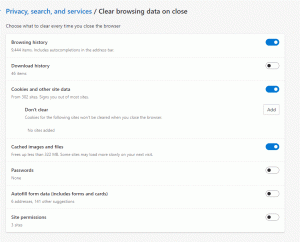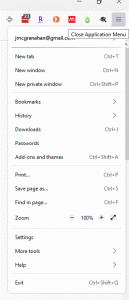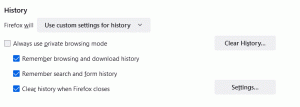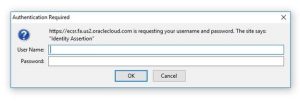UPDATED version:
Sometimes our browsers get clogged and cause issues, especially when trying to access sites that are behind protective layers. Then we have to tell users to go clear their browser’s history and cache. There is a way that this can be done automatically, though, when a user closes their browser. Please see below for how to do this based upon your preferred browser:
Edge (Version 100.0.1185.36 (Official build) (64-bit))
- Open the Edge browser
- Click on the 3 dots on the top-right and select “Settings”
- Click on “Privacy, search, and service”
- Click on “Choose what to clear every time you close the browser”
- Turn on at a minimum “Browsing history”, “Cookies and other site data”, “Cached images and files”

After this, you are done. There’s nothing else you need to change for Edge (and there is no “Save” button). You can now start using your browser as normal and when you close it, it will automatically clear your history & cache for you.
Firefox (Version 99.0 (64-bit))
- At the top of the Firefox window, click the menu button on the right and then select Settings

- Click on Privacy & Security
- Look for the “Cookies and Site Data” section click the check box next to “Delete cookies and site data when FireFox is closed”

- Scroll down to “History” section and change the drop down next to “Firefox will” from “Remember history” to “Use custom settings for history”. Then click the check box next to “Clear history when Firefox closes”

That’s it. Like Edge, there is no “OK” or “Save” button – it automatically saves your changes/updates so you can now use your browser as normal. And the next time you close it, it will automatically clear your history and cache for you.
Chrome (Version 100.0.4896.75 (Official Build) (64-bit))
- Open the Chrome browser
- Open the Chrome menu options (3 dots to the right) and then select Settings
- Click on Privacy and security
- Click the Cookies and other site data
- Scroll down until you see “Clear cookies and site data when you close all windows” and toggle it from off to on

Like the other browsers, there is no “OK” or “Done” button – it automatically saves your updates. But this is it – this is all you need to change.




